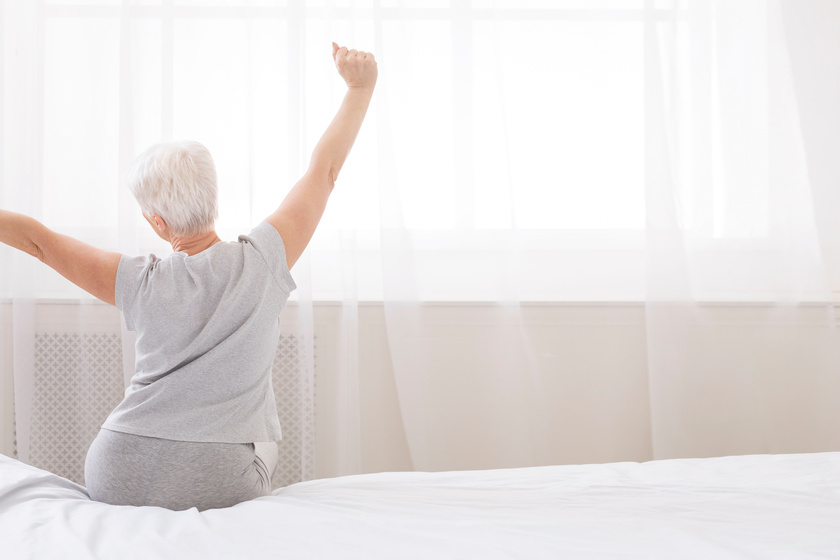We all know that sleep is essential, but it’s necessary as we get older. As you age, your body and mind need more time to recover from the day’s activities and prepare for the following day. Failure to get enough quality sleep can lead to problems with mood and energy levels, physical health issues like diabetes or heart disease, and even early mortality rates. Here are seven ways that you can improve your sleep quality as you grow older:
Stick to a Sleep Schedule
If you want to stick to a sleep schedule, ensure your bedtime is consistent. Try going to bed at the same time every night and waking up at the same time every morning. To ensure that your bedtime is healthy, consider setting the alarm for an hour before you would typically wake up to give yourself time for some light exercise.
Try a Relaxing Bedtime Routine
What is a relaxing bedtime routine? A comfortable bedtime routine is a series of activities you do in the evening that help you unwind and prepare for sleep. These activities include:
- Taking a bath
- Reading a book
- Listening to music
- Meditating
- Doing yoga
Having a bedtime routine is essential as it helps your body relax before bed and keeps your mind from racing about everything you need to do tomorrow morning.
Keep Your Bedroom Dark
Sleep experts recommend keeping your bedroom dark because light exposure can negatively affect sleep quality and circadian rhythm. Light from streetlights or the moon can be enough to trick your body into thinking it’s daytime.
If you have trouble sleeping in a dark room, here are some methods you can try:
- Use blinds, curtains, or a sleep mask to block light.
- Turn off any televisions or computer screens an hour before going to bed; even the glow of these devices is enough to disrupt melatonin production and make it difficult to fall asleep.
- Don’t use your phone or tablet while trying to fall asleep
Manage Your Food and Fluid Intake
The best thing you can do before bed is to stay away from large meals, fluids, and medicines that may keep you awake. It will help prevent heartburn, which can be uncomfortable and lead to insomnia. Spicy foods, which stimulate digestion, should not be eaten close to bedtime as they cause indigestion and make it difficult to sleep.
Stay hydrated throughout the day, so you’re well hydrated when you go to sleep. Drinking enough water during the day will help you maintain healthy blood pressure levels throughout the night and reduce headaches.
Exercise Regularly
Exercise is one of the most important factors for overall health and wellness and can help sleep. The benefits of exercise include stress relief, increased energy levels, improved mood and self-esteem, lower blood pressure and cholesterol levels, weight loss or weight management goals, and better digestion function, as well as many others.
In addition to being beneficial for your overall health and wellness, exercise has improved sleep quality in adults over 65. Research shows that regular aerobic activity has been associated with better sleep duration and quality in older adults compared to those who do not exercise regularly. Moreover, one recent study found that men who engage in moderate physical activity daily were less likely than sedentary men to report difficulty falling asleep at night or waking up too early (hypersomnia). However, not all types of exercise are suitable for everyone, so check with your doctor before starting any new activities!
Avoid Long Naps Late in the Day
Avoid long naps, especially late in the day. Naps can affect your sleep at night, so they should not be taken for more than 30 minutes and should always be taken in the early afternoon.
Avoid These Stimulants
As you get older, your body will naturally produce less melatonin and serotonin—two hormones that help regulate your sleep cycle. As a result, it can be harder to fall asleep at night (or stay asleep) because of changes in your circadian rhythm.
To counteract this effect of aging on your body’s natural ability to regulate its internal clock, look for ways to avoid caffeine and nicotine late in the day/night by:
- Giving up coffee after 2 pm
- Drinking no more than one alcoholic drink per day
Get Quality Sleep Today
There are plenty of things you can do to improve your sleep quality. From sticking to a sleep schedule and avoiding caffeine late in the day or night, there are many ways that you can get better quality rest for yourself. It would be best to take care of yourself by getting enough rest at night so your body has time to recover from daily stressors.







